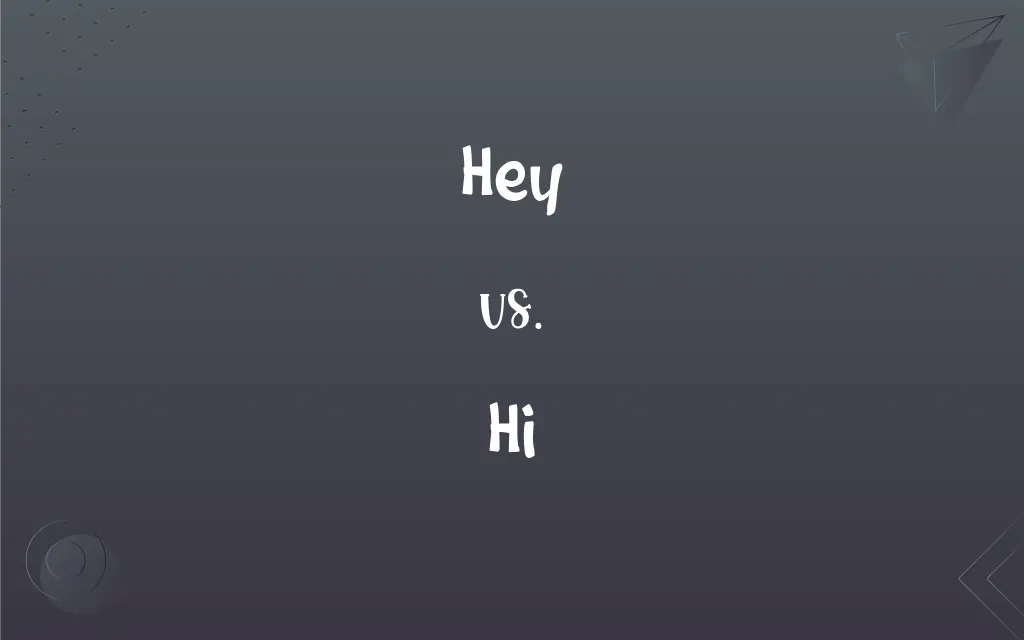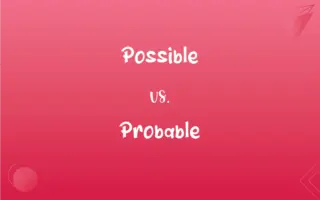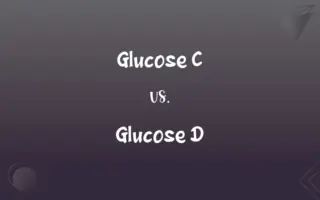Hey vs. Hi: What's the Difference?
Edited by Harlon Moss || By Janet White || Published on December 15, 2023
Hey is an informal greeting or attention grabber, often casual. Hi is a standard, friendly greeting, usually informal.

Key Differences
Hey is often used to grab attention or express surprise, in addition to being a casual greeting. Hi, on the other hand, is almost exclusively used as a friendly, informal greeting. Hey carries a more informal tone than hi.
When using hey in a conversation, it can suggest a relaxed, informal interaction. In contrast, hi is more universally accepted as a polite and standard form of greeting. Hi is seen as slightly more formal than hey.
In digital communication, such as texting or emails, hey can convey a more personal or casual tone. Hi is often used in the same contexts but can be perceived as more neutral or professionally friendly. Hi is versatile, fitting both casual and semi-formal contexts.
Hey is also used to express surprise or to call for someone's attention in a casual manner. Whereas hi is rarely used for anything other than greeting. Hey can imply familiarity or informality, whereas hi is more universally used.
The use of hey can vary based on cultural or regional preferences, often seen as very informal or casual. Hi, being more standardized, doesn't carry as many regional variations in its use. Hi is universally recognized and understood as a greeting.
ADVERTISEMENT
Comparison Chart
Usage
Attention-grabbing, informal greeting
Standard, friendly greeting
Tone
More informal, casual
Neutral, slightly formal
Contexts
Personal, casual conversations
Both casual and semi-formal contexts
Variations in Use
Can imply familiarity or surprise
More consistent as a simple greeting
Cultural Preferences
Varies regionally, often seen as very casual
Universally recognized, less variation
ADVERTISEMENT
Hey and Hi Definitions
Hey
An informal greeting or call for attention.
Hey, have you seen my keys anywhere?
Hi
Friendly way to acknowledge someone.
Hi, I didn't see you there!
Hey
Expression of surprise or recognition.
Hey, isn't that John from high school?
Hi
Polite and universal salutation.
Hi, how can I help you?
Hey
Casual way to initiate conversation.
Hey, I like your new haircut!
Hi
Used to greet someone in a casual manner.
Hi, how's your day going?
Hey
Friendly, informal salutation.
Hey, how's it going?
Hi
A standard informal greeting.
Hi, nice to meet you!
Hey
Used to attract someone's attention gently.
Hey, can you pass me the salt?
Hi
Simple, informal way to start a conversation.
Hi, what's up?
Hey
Used to attract attention or to express surprise, appreciation, wonder, or pleasure
"Oh, hey, you saw that ninety-nine-yard punt return in the Super Bowl? Wow, so did I!" (Don Pfarrer).
Hi
Used to express greeting. See Note at hey.
Hey
Used to express greeting.
Hi
A friendly, informal, casual greeting said upon someone's arrival.
Hi, how are you?
I just dropped by to say “hi”.
FAQs
Is 'hey' acceptable in formal emails?
In formal emails, it's better to use 'hi' or a more formal greeting than 'hey'.
Do 'hey' and 'hi' have the same level of formality?
No, 'hey' is more informal than 'hi'.
Can 'hi' be used in all contexts?
'Hi' is versatile, fitting both casual and semi-formal contexts.
What's the main difference between 'hey' and 'hi'?
'Hey' is more informal and can be attention-grabbing, while 'hi' is a standard, friendly greeting.
Can 'hey' be used to express surprise?
Yes, 'hey' can be used to express surprise or recognition.
Can 'hi' be used in text messages?
Yes, 'hi' is perfectly suitable for text messages and informal digital communication.
Is 'hi' a universal greeting?
Yes, 'hi' is universally recognized as a friendly greeting.
Is 'hey' appropriate for professional settings?
'Hey' is generally too casual for formal professional settings, where 'hi' is more suitable.
Can 'hey' imply familiarity?
Yes, 'hey' often implies a level of familiarity or informality.
Is 'hey' a recent addition to English?
'Hey' has been in use for a long time, but its casual usage has become more prominent recently.
Does 'hi' carry any connotations of surprise?
No, 'hi' is generally just a simple greeting without additional connotations.
Do 'hey' and 'hi' have different origins?
Yes, they have different etymological origins but have converged in use as greetings.
Can 'hi' be perceived as too formal?
In very casual or intimate settings, 'hi' might seem slightly formal compared to 'hey'.
Is it appropriate to start a business meeting with 'hey'?
It's typically more appropriate to use 'hi' or a more formal greeting in business meetings.
Are there any regional differences in using 'hey' and 'hi'?
Yes, 'hey' can vary regionally in its perceived informality, while 'hi' is more universally consistent.
Is 'hey' informal in all English-speaking countries?
Generally yes, but its level of informality can vary slightly by region.
Is it okay to use 'hey' with someone I just met?
It depends on the context; 'hi' is safer with new acquaintances, especially in formal settings.
Can 'hi' be used both in person and online?
Yes, 'hi' is appropriate for both in-person and online communication.
Are there any age-related preferences for 'hey' and 'hi'?
Younger generations may prefer 'hey' for its casualness, but this is not a strict rule.
How do 'hey' and 'hi' affect the tone of a conversation?
'Hey' sets a more casual, friendly tone, while 'hi' is neutral and universally friendly.
About Author
Written by
Janet WhiteJanet White has been an esteemed writer and blogger for Difference Wiki. Holding a Master's degree in Science and Medical Journalism from the prestigious Boston University, she has consistently demonstrated her expertise and passion for her field. When she's not immersed in her work, Janet relishes her time exercising, delving into a good book, and cherishing moments with friends and family.
Edited by
Harlon MossHarlon is a seasoned quality moderator and accomplished content writer for Difference Wiki. An alumnus of the prestigious University of California, he earned his degree in Computer Science. Leveraging his academic background, Harlon brings a meticulous and informed perspective to his work, ensuring content accuracy and excellence.






































































